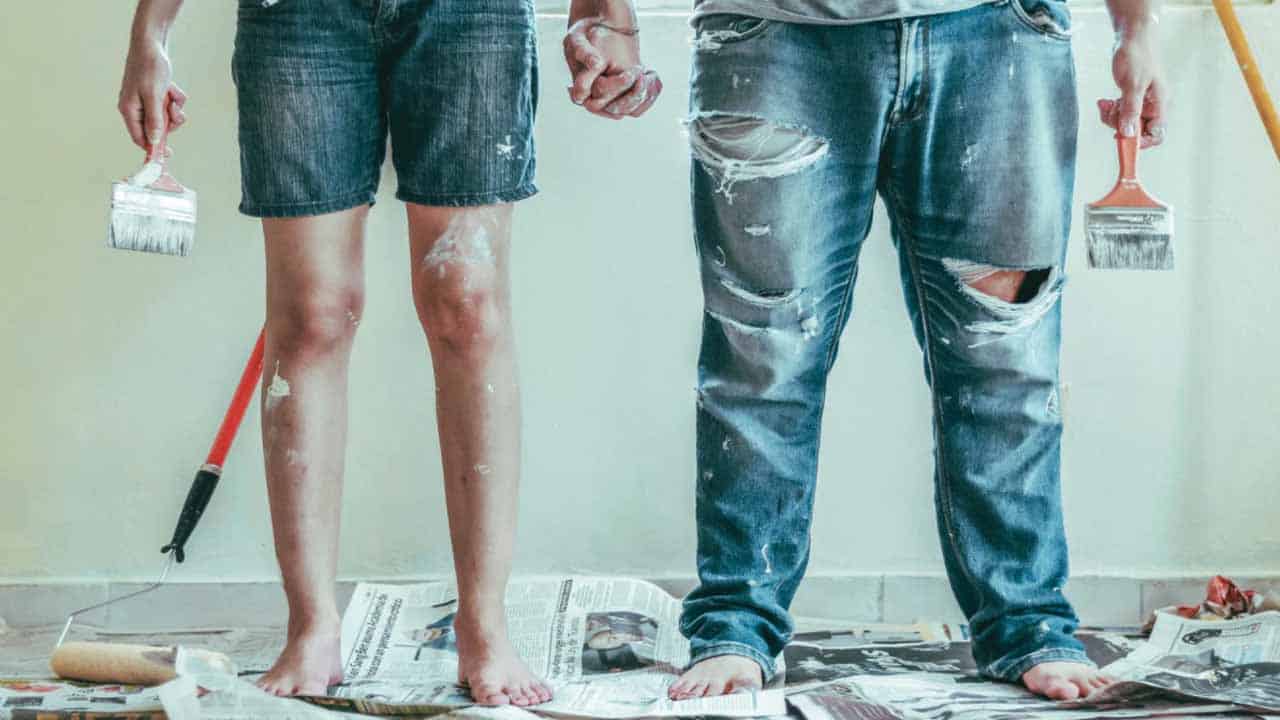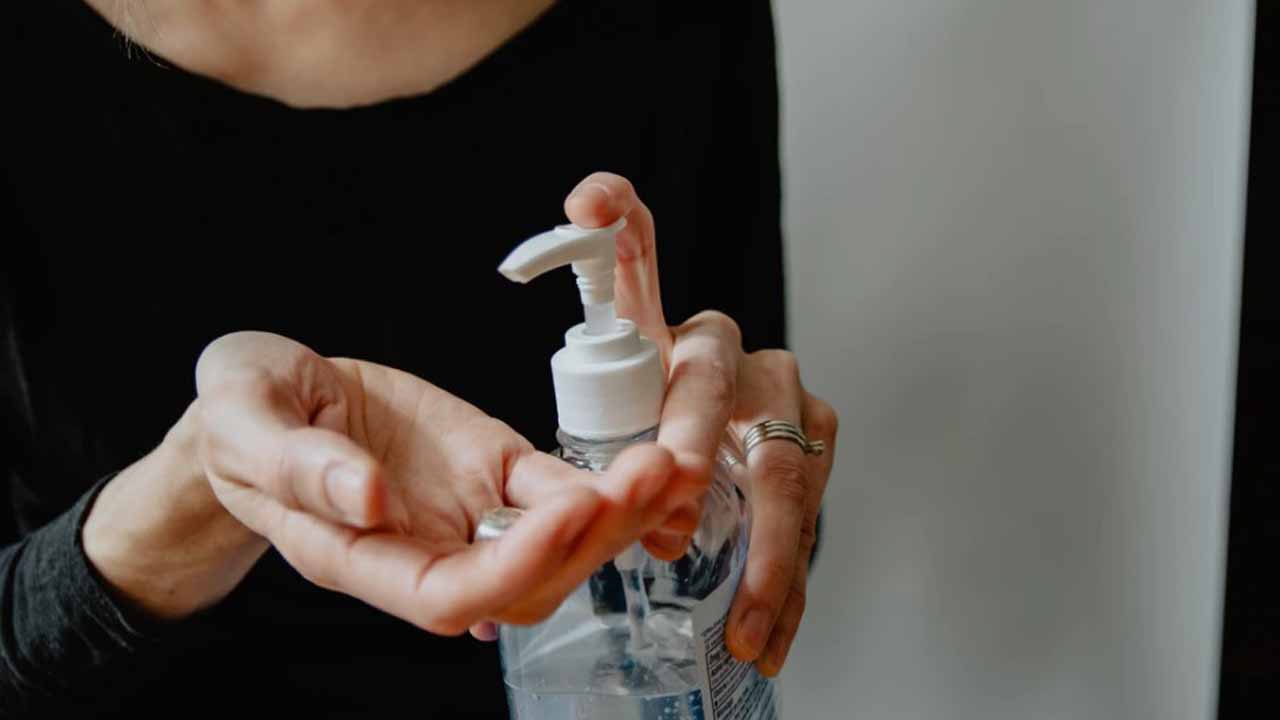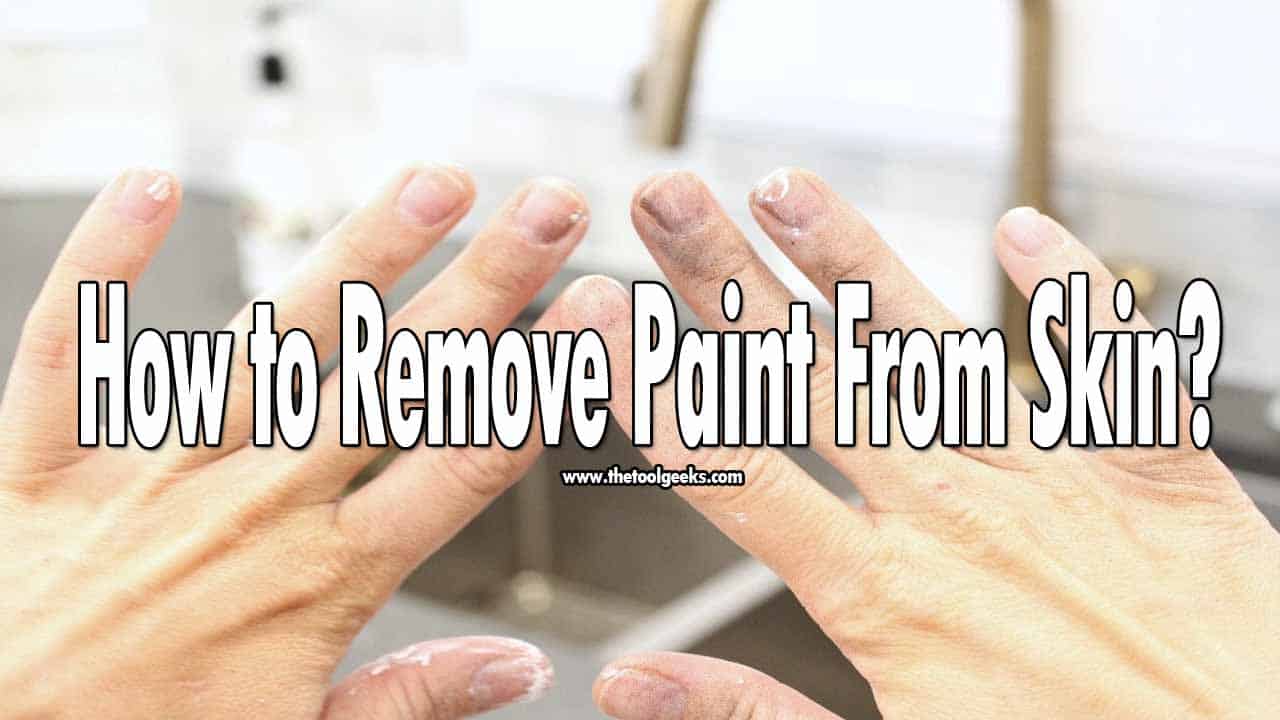How to Remove Paint From Skin? (Natural Way)
TheToolGeeks.com is a participant in the Amazon Services LLC Associates Program and other affiliate advertising programs. We may earn from qualifying purchases. (Learn More).
Getting paint on your skin is one of those things you can’t avoid while dealing with paint. Somehow while mixing the paint, thinning, or while painting surfaces, some paint will get stuck on your fingers, palms, hands, feet, and sometimes your face.
Given that paint dries quickly on the skin and can also cause skin irritation and other health concerns. So, how to remove paint from skin? Well, that’s what we are going to figure out with this post so scroll down to keep reading.
The quickest way to remove paint from your skin is to immediately wash it off with soap and lots of water. But it’s not every time you discover the spray paint on your skin quickly enough to wash it off immediately.
Most of the time, you wouldn’t even notice the spray paint on your skin till you are done painting and by then, it’s kind of too late to use just rinse it off. What do you do then? Do you need to rub alcohol on your skin? Or do you need to go to a convenience store to get a paint remover? How do you get the dried paint off your skin?
You see there is a lot more to know about getting spray paint off your skin. This post will highlight and explain the best methods to get spray paint off your skin easily as well as an expert tip on how to prevent paint stains on your body. So let’s get on with it.
Is Paint Harmful to the Skin?
There isn’t one particular answer to this question as there are different types of paint. While some paints like water-based paint and alcohol-based paint wouldn’t harm you, some can cause some type of skin irritation and also clog up your skin pores making it very difficult for the skin to stretch and breathe. Acrylic paint for instance contains some harmful chemicals like lead and ammonia that shouldn’t even come in contact with your skin under any circumstance.
With that being said, it’s still not advised to go around splashing paint on your skin just because the label states “non-toxic” or because you know it can’t harm you.

Any type of paint, be it harmful or not shouldn’t be left on the skin for a prolonged time, so as soon as you notice the paint on your skin, it’s best to remove it immediately.
The way you apply spray paint while working with it also influences if or not the paint can prove harmful to you. While using a paintbrush, the paint can drop on your skin or you can accidentally stroke the brush against your skin.
That shouldn’t cause any worry except you have really sensitive skin or you are working with some kind of toxic paint. However, if you are using a paint sprayer for your task, spraying the paint from the nozzle on your skin can prove very harmful.
This is because paint sprayers use a lot of built-up pressure to push the spray paint out onto the surface or canvass at an impressive speed.
If you aim the nozzle at your arm or any part of your body and accidentally pull the trigger, the pressure would be so much that the spray paint can get through your skin pores and find its way into your bloodstream.
Now, that will cause some serious health concerns since spray paint is made to be used on walls and exteriors, and not to be inside your body.
Overall, try to limit the rate at which you get paint on your skin and immediately you discover the paint stain, deal with it and you would be fine. So how do you get paint off your skin?
Related Read — Best Paint Sprayers For Kitchen Cabinets
How to Remove Paint From Skin?
There are dozens of methods to remove spray paint from the skin. If the stain is discovered early enough, you can use water, dish soap, baking soda, or detergent to wash it off.
But sometimes, dish soap and water wouldn’t do the trick or wouldn’t do it well and other times, the spray paint was discovered a little too late to use just dish soap and water.
Then you will need to use some other method. Luckily, there are different ways to get even the toughest paint stains off your body and we are going to check out the best of the lot. How can you get paint off your skin? Here we go.
First off, let’s look at some home remedies you can try out.
Wash Off With Soap and Water
The first thing to do when you discover any sort of stain is you try to clean it with a damp rag and some dish soap. It’s the same thing with paint stains on your skin.

When you discover the paint stain, pour some dish soap or detergent on the area. Then add some water and use your fingers to rub the area so the paint comes off. If the spray paint doesn’t come off, you might need to use a soft sponge to scrub your skin.
After you have washed the area, rinse off with plenty of water, and use a cloth or towel to dry that area. Chances are the paint will come off after you do this but if it doesn’t, don’t panic.
It just means the paint has been on the skin for a while. You will therefore need to use something stronger than dish soap. This is the most natural way to remove spray paint from your skin.
Use Alcohol
Alcohol is great for removing alcohol-based paint and it can also work for many other types of paint too. Luckily, it’s something we sometimes have somewhere around the house.
Add a few drops of alcohol on the affected area and gently use your thumb to massage the skin and the paint repeatedly till you see the spray paint coming off.

An added advantage to alcohol is that it is an effective disinfectant so while getting paint off, you are also getting rid of germs that the dish soap might have missed.
You can add some more alcohol as you move on. You should see the spray paint start to come off as you massage the area. Do this repeatedly but don’t use too much alcohol as it can start to sting a little. If the alcohol doesn’t remove the paint completely.
Don’t worry. There are still other ways to get that pesky paint off your skin. If the paint is still there, the good news is the dish soap and alcohol would have broken the paint down and a huge part of it should be gone too. This would make it easier for other methods to work fine.
Related Read — How to Paint Spray in Cold Weather?
Use Nail Polish Remover
Here comes the part where you need to ask your sister or wife for some of her precious nail polish removers. Nail polish remover is made up of some very active solvents and dissolvers that liquidize paint and makes it easy to wipe them off.
One of such dissolvers is “Acetone.” If you can’t get your hands on a bottle of nail polish remover, you can go for a bottle of Acetone.
Acetone is a dissolving compound and a primary ingredient of nail polish removers. It dissolves spray paint and hard stains very easily and quickly.
If alcohol doesn’t work, nail polish remover or Acetone should work. Simply apply a few drops of nail polish remover on a cloth or the skin and massage the area or use a cloth to wipe the area repeatedly.
Unlike alcohol, nail polish remover wouldn’t sting. Instead, it would cool that area of the skin and some nail polish removers produce a nice scent too so in addition to cleaning your skin, you get a nice fragrance alongside.
The nail polish remover is built to remove paint so it should get rid of that spray paint on your skin. If it doesn’t then that must be some very stubborn paint. Luckily, we still got a few more tricks up our sleeves to get the spray paint off.
Use Professional Stain Removers
This method is to be reserved for last. This is because some high-grade stain removing solvents aren’t skin-friendly.
While they take the paint off, they can leave you with some nasty skin irritation or discoloration. So before you pick up a bottle or spray can of stain remover, read the label to be sure it can be used on the skin. One great professional stain remover you can use is WD-40.
WD stands for Water-displacing and WD-40 is a water-displacing spray that can be used on the skin and it serves as a very effective stain remover.
You can get a can and spray the dissolver on your skin. It will dissolve the paint and you will see it start to drop off even without scrubbing.
You can also go for any other professional paint remover but ensure that it can be used on the skin and it doesn’t contain any product or substance that can cause a skin rash, irritation, discoloration, or infection.
Related Read — See Our Picks For High-quality Paint Sprayer for Beginners
Should You Use Paint Thinner to Remove Paint From Your Skin?
No, you should not use paint thinner on your skin. Using paint thinners to remove paint from your skin can result in nausea, headaches, a feeling of drunkenness, and even loss of coordination especially if inhaled.
Paint thinners produce toxic fume when it comes in contact with paint and if the fume is inhaled in large quantities, you will start to feel lightheaded and nauseous. If the paint gets on your skin, it can cause skin dryness and skin irritation.
Some paint thinners even have specific instructions on the container instructing the user to use gloves while using the thinner and also wash off with soap and plenty of water if the thinner comes in contact with any part of the body.
Paint thinner is usually used to thin oil-based paint and while it also serves as a good paint remover, you shouldn’t use it on your skin.
Many painters use paint thinner to wash paint brushes and other painting equipment after a painting session because paint thinner will breakdown and dissolve the paint easily. This doesn’t mean it should be used on the skin.
The effects of paint thinner on the skin aren’t all that immediate. If paint thinner comes in contact with your skin, it can cause your skin to dry out very quickly and easily making it difficult for the skin to stretch or breathe.
Also, the vapor that results from the application of paint thinner can be harmful to your eyes and nose. However, long term health concerns that result from consistent usage of paint thinner include migraines, dizziness, blood disorders, nervousness, and so on.
Related Read — How to Paint Spray Your Furniture?
How Can You Prevent Paint From Getting on Your Skin?
It seems like an impossible task to paint a wall, canvass, or any other surface without getting at least a drop or two of paint on your body but it isn’t.
It’s very easy to keep spray paint from coming in contact with your skin and it’s also your best bet. While the paint removing methods out there will get rid of the paint from your skin, constant exposure to the cleaning agents, dissolvers, and solvents would do more harm than good to your skin.
Constantly using Alcohol, Acetone, Nail polish remover, or any paint removing solvent on your skin can lead to serious long-term health concerns so in this case like most others, prevention is better than cure. So how do you prevent paint from getting on your skin?
- Wear long trousers and long-sleeved clothes. Wear clothes that cover your arms and legs so the paint doesn’t drip on your limbs.
- Wear Gloves. While dealing with paint, the part of our body most susceptible to paint stains, strokes, or spray is our hand. The palm and fingers do a lot of painting activity that can result in paint stains. Using a pair of gloves will prevent that.
- Wear boots. While painting, it’s advised to put on a pair of boots to protect your feet from paint stains.
- Use a face mask. While getting paint on your skin can be harmful, it would be considered child’s play if you ever experience paint getting into your eye, nostrils, or even mouth. It is very difficult to get spray paint out of those areas and it can be really dangerous to have paint in there too.
- Maintain your distance. While painting, maintain your distance from the surface you are painting especially if you are using a paint sprayer. The paint can bounce off the surface and on your body or accidentally splash on your body when you pull the trigger. It’s advised to keep about 10-12 inches from the wall or canvass when using a sprayer or spray gun.
So there you have it. stick to the tips above and you shouldn’t have any spray paint on your body while painting and if you turn out to have a paint drop on your skin, I bet you know the methods to get it off quickly and easily too.
Let me know if you have any comments or questions by leaving them below in the comment section and I’ll respond to them as soon as possible. Have a nice day.
Related Read — Should you buy an LVLP or an HVLP Spray Gun?
Amazon and the Amazon logo are trademarks of Amazon.com, Inc, or its affiliates.

